
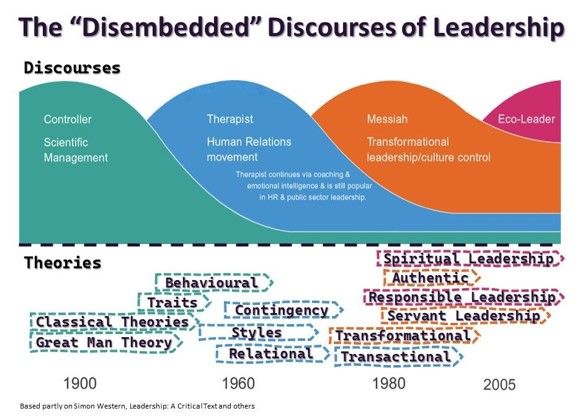
1. Leadership TRAIT Theories Don't Work
Chances are that someone has gifted you one of those multi-coloured, slogan-rich "airport" management books that often come with "washing lists" of highly critical characteristics, or secret "power traits", of successful leaders. Humility, perseverance, discipline, openness to change, toughness, curiosity, cleverness, empathy, courage… you name it! Normally, those lists are accompanied by sophisticated case studies of famous entrepreneurs or other great men (sic!), spirited (and equally meaningless) statistical analyses, highly subjective interpretations, and polaroid conclusions.
Sadly, fact is: only 5% of those allegedly all-important character traits overlap across (researched) recommendations, and - even more sadly - it is impossible to possess them all. However, more importantly, the whole "positivistic" idea that leadership success is dependent on a specific set of unchanging individual character traits, to be acquired and transferred from one job to the next - is, in one word: nonsensical. Any replicable correlation between leadership traits and success is mostly spurious.
That said, the idea that "anyone can be a leader", absolutely independent of their personality traits, is of course equally flawed.
2) Leadership STYLE Theories (Mostly) Don't Work Either
Next on the list of leadership philosophies is normally something called "style theory". Here, the focus is not just on specific leadership traits but on characteristic behaviours. Again, leadership is mostly defined reductively as "influencing others to do something they otherwise would not do" and the behaviourist assumption is that followers work harder if leaders display certain styles (As Antoinette Weibel always says: "Happier cows give better milk"). Style "washing lists" are equally long, taxonomy is brittle, and naming conventions overlap - eg "democratic", "coaching", "visionary" (as opposed to "authoritarian") styles etc., etc.
To cut a long story short: style theory is not well supported by evidence. Mainly, differences between styles are supposed to relate to the usage of power and control by a superior, and it is rather simplistically assumed that more "democratic" styles - ceteris paribus - are superior, because they - allegedly - better fulfill employees' needs for participation and self-actualisation.
Whilst in meta research "supportive" styles in general show some positive effects, most studies fail to demonstrate any meaningful improvement in productivity, based on styles alone. Notably, in "routine" work, where tasks can be separated and monitored independently, structured leadership styles (ie "command and control") unsurprisingly prove to be more "effective", even if they often reduce employee morale.
3. CONTINGENCY Theories Are Better, But It Quickly Gets Complicated
History moves on and soon the next wave of leadership models hits (Western) business schools: quickly, the so-called "contingency theory" is all en vogue. Contingency theorists turn away from individual leadership behaviours or styles, looking instead for more holistic leadership strategies in specific situations - defined in particular by the (optimal) fit between task, team/individual and the position/personality of the leader within the team (see, e.g. John Adair).
In this context, Fiedler, for example, suggests that optimal leadership behavior is dependent on: 1) whether the leader is liked/trusted; 2) whether the task is well defined; and 3) whether the leader has (reward/sanction) power. The model is intriguing: Fiedler proposes that whenever tasks are well defined and leaders well respected - or, conversely, when tasks are ambiguous and leaders weak, a higher "psychological distance" between leaders to teams (again, read: "command and control") will increase effectiveness. A combination of ambiguous tasks and strong leaders instead seems to call for participatory approaches. Another researcher, Vroom, seeks to add even more complexity and additional factors, but - yet, again - both models only have limited empirical support.
The basic idea of contingency theory is undoubtedly compelling, i.e., that a leader's "right" intervention will depend on multiple factors. Therefore, the capacity of leaders to perceive effectively and perform adaptively in specific circumstances is critical. My wistful statistics professor used to say: "If we torture data long enough, nature will confess" - unfortunately, in spite of his optimism, which factors matter most and how these combine into superior leadership strategies remains rather difficult to prove - beyond theoretical scenarios, and continues to resist simplistic and "deterministic" regression analysis.
4. "Transaction versus Transformation" Is Mostly the Same Old Wine In New Bottles
At this point, many of us are probably feeling somehow between mildly desperate and seriously frustrated. Having scanned thousands of google links on leadership, one thing is becoming exceedingly clear: theories, models, methods, case studies… abound and proliferate. But rather than making things clearer, popular texts on leadership tend to further obscure matters by continuously adding "innovative" vocabulary, inventing endless streams of "helpful" tools, and trumpeting around (unsubstantiated) lists of "lessons learned"… and academic essays are no better. But our story is not over yet…
Towards the end of the millennium, leadership-mania reaches its preliminary apex - characterised by a general shift from "closed system" management approaches and "behaviourist" models, that take the stability of the environment more or less for granted, towards "transformational" and "visionary" narratives, intended to spur new growth, scalable ecosystems and technological disruption. Leadership has by now become the single most venerated ingredient of popular management fiction and mythical business transformation stories (remember "Good-to-Great", anyone?).
Surfing the hype, one popular classification suggests a dichotomy of "transactional vs transformational" leadership styles, integrating earlier style and contingency theories - and milking that rather simplistic "leader vs manager" divide that Henry Mintzberg so delightfully deconstructs. In a nutshell, the "T vs T" model suggests that "leadership situations" can generally be abstracted into: a) more traditional, steady-state, production oriented firms; and b) more change and innovation-led service oriented businesses. Allegedly, for the former type of businesses, a stricter task-, process- and result-oriented leadership style, rewarding self-motivated individuals "transactionally" for progressing work is more effective; whilst in more growth and creativity-oriented organisations, transformational leadership prevails: focused on inspiring others to follow, nurturing and positively motivating employees and empowering employees to make their own decisions and think out of the box. Transformational leadership, so the story goes on, therefore also requires a higher degree of coordination, communication, and cooperation.
It doesn't take much imagination to see that - whilst wildly popular - this "novel" leadership recipe is still suffering from exactly the same flaws of abstraction and simplification of previous theories - with the additional problem of sanctifying "transactional" styles in some cases, whilst reifying "transformational" leadership in others. None of it is founded in much supportive research, nor adding truly additional insights to the discussion or leadership education.
The 21st Century Beckons… With Babelian Confusion
Eventually evolving beyond legacy discourses and theories, today's leadership thinking seems fueled mainly by three "streams" of (overlapping) conversations:
- Complexity and agility: still somewhat resonant of the "messianic" leadership discourse that suggests to generate cohesive "organisational cultures", based on shared vision and peer-controlled norms; the focus shifts from internal cohesion and "inspiration" towards the necessity to continually adapt to external change and complexity, and from collective culture to a focus on individuals and cross-functional teams. Entrepreneuship, "growth mindsets", "fail fast", "failure-friendly" cultures, "complex adaptive systems" and similar buzz words all seek to provide legitimacy for greater decentralisation of decision-making, more self-managing organisations (SMOs), and higher local autonomy, innovation and creativity. Leaders are supposed to stimulate continuous transformation, much in the tradition of "transformational leadership", whilst also adapting the organisational structure and policies to facilitate co-creation and iterative adaptation and prototyping. Ultimately, autonomy of corporate entrepreneurs or cross-functional teams is meant to be almost exclusive, whilst bureaucratic or integrative "overhead" are supposed to be strictly limited.
- Participation: arguments here often start in similar ways to the "agility" discussion, but frequently merge with a populist drive for more equality, industrial democracy and the liberation of oppressed employees ("unbossing"). Often with "progressive" neo-marxist undertones (back to class conflicts and "labour vs the elites"), the proponents of this discourse promote cooperative enterprises and extensive power sharing, as well as more substantive changes in ownership and remuneration. Leadership here is often described in similar fashion to the anti-authoritarian "therapist discourse" where superiors are supposed to act mainly as coaches and "primus inter pares", whilst supporting the development of community, psychological safety and context, rather than micro managing tasks.
- Consciousness, sustainability and social justice: in this category we find a mixture of proposals that aim to increase consciousness - and conscience - of individuals and organisations, in order to "lift up" both our relational models and benefits for society and future generations. Suggestions range from greater external control, through regulation or disclosure, to voluntary and market- or project-based interventions (e.g. SDG, ESG etc), to a shift in inner maturity and development (e.g. Teal, Spiral Dynamics). In spite of lots of "green" and "purpose washing", a colourful canopy of new variants of organisational standards, processes, success measures and legal forms (eg bcorp, ECG, social enterprise) is emerging to support a more ethical and responsible way of doing business.
In a nutshell, what already was a messy landscape of theories and practices is becoming ever more confusing. Multiple novel leadership approaches - servant leadership, responsible leadership, authentic leadership etc - are seeking to integrate the different perspectives and offer inspiration, but I will argue the field remains, for practitioners as well as researchers, an unholy patchwork…
And that is no surprise. Our "leadership discourses" (Thanks to Simon Western for his brilliant work on the subject!) are always closely linked to societal narratives, and "leaders" - as public roles - therefore always also "embody" a statement about an implied social order. In this context, Amy Edmondson points out that certain roles in society carry symbolic significance - like policemen, teachers, or politicians - and such roles are endowed with "special morality", as Alejo Sison suggests. In other words, our discussions about leadership and our evaluation of leaders today are reflective of a deeper anxiety and uncertainty about how to evolve our postmodern society. Sadly, most discourses remain embedded in a "disembedded" way of thinking - leadership, in one way or another, still focuses on "manipulative" methods and tools to generate more profit and extract higher performance from employees. And where it does not, suggested alternative "leadership purposes" mostly lack solid (ethical or philosophical) legitimacy, being above all expression of the often highly opinionated views of their respective authors.
In summary, reflecting back over 25+ years in leadership, it seems clear that being a good leader is consecutively becoming more difficult. We always had to deal with a plethora of (diverse) expectations about "what leadership means" within our organisations, but now there is an ever greater confusion and fragmentation of opinions also on the "outside" of business - and the role of leadership is becoming increasingly more complex and political. As leaders, we are asked not only to be effective, but also to take a stand for the type of future and society we, collectively, envisage.
Maybe time has come again for the "leader's prayer" (thanks to Charles Handy for ongoing inspiration!)… ;-)
(Image from: Charles Handy in: Understanding OrganisationsFrom Leader to Good Leadership)
1. Leadership TRAIT Theories Don't Work
Chances are that someone has gifted you one of those multi-coloured, slogan-rich "airport" management books that often come with "washing lists" of highly critical characteristics, or secret "power traits", of successful leaders. Humility, perseverance, discipline, openness to change, toughness, curiosity, cleverness, empathy, courage… you name it! Normally, those lists are accompanied by sophisticated case studies of famous entrepreneurs or other great men (sic!), spirited (and equally meaningless) statistical analyses, highly subjective interpretations, and polaroid conclusions.
Sadly, fact is: only 5% of those allegedly all-important character traits overlap across (researched) recommendations, and - even more sadly - it is impossible to possess them all. However, more importantly, the whole "positivistic" idea that leadership success is dependent on a specific set of unchanging individual character traits, to be acquired and transferred from one job to the next - is, in one word: nonsensical. Any replicable correlation between leadership traits and success is mostly spurious.
That said, the idea that "anyone can be a leader", absolutely independent of their personality traits, is of course equally flawed.
2) Leadership STYLE Theories (Mostly) Don't Work Either
Next on the list of leadership philosophies is normally something called "style theory". Here, the focus is not just on specific leadership traits but on characteristic behaviours. Again, leadership is mostly defined reductively as "influencing others to do something they otherwise would not do" and the behaviourist assumption is that followers work harder if leaders display certain styles (As Antoinette Weibel always says: "Happier cows give better milk"). Style "washing lists" are equally long, taxonomy is brittle, and naming conventions overlap - eg "democratic", "coaching", "visionary" (as opposed to "authoritarian") styles etc., etc.
To cut a long story short: style theory is not well supported by evidence. Mainly, differences between styles are supposed to relate to the usage of power and control by a superior, and it is rather simplistically assumed that more "democratic" styles - ceteris paribus - are superior, because they - allegedly - better fulfill employees' needs for participation and self-actualisation.
Whilst in meta research "supportive" styles in general show some positive effects, most studies fail to demonstrate any meaningful improvement in productivity, based on styles alone. Notably, in "routine" work, where tasks can be separated and monitored independently, structured leadership styles (ie "command and control") unsurprisingly prove to be more "effective", even if they often reduce employee morale.
3. CONTINGENCY Theories Are Better, But It Quickly Gets Complicated
History moves on and soon the next wave of leadership models hits (Western) business schools: quickly, the so-called "contingency theory" is all en vogue. Contingency theorists turn away from individual leadership behaviours or styles, looking instead for more holistic leadership strategies in specific situations - defined in particular by the (optimal) fit between task, team/individual and the position/personality of the leader within the team (see, e.g. John Adair).
In this context, Fiedler, for example, suggests that optimal leadership behavior is dependent on: 1) whether the leader is liked/trusted; 2) whether the task is well defined; and 3) whether the leader has (reward/sanction) power. The model is intriguing: Fiedler proposes that whenever tasks are well defined and leaders well respected - or, conversely, when tasks are ambiguous and leaders weak, a higher "psychological distance" between leaders to teams (again, read: "command and control") will increase effectiveness. A combination of ambiguous tasks and strong leaders instead seems to call for participatory approaches. Another researcher, Vroom, seeks to add even more complexity and additional factors, but - yet, again - both models only have limited empirical support.
The basic idea of contingency theory is undoubtedly compelling, i.e., that a leader's "right" intervention will depend on multiple factors. Therefore, the capacity of leaders to perceive effectively and perform adaptively in specific circumstances is critical. My wistful statistics professor used to say: "If we torture data long enough, nature will confess" - unfortunately, in spite of his optimism, which factors matter most and how these combine into superior leadership strategies remains rather difficult to prove - beyond theoretical scenarios, and continues to resist simplistic and "deterministic" regression analysis.
4. "Transaction versus Transformation" Is Mostly the Same Old Wine In New Bottles
At this point, many of us are probably feeling somehow between mildly desperate and seriously frustrated. Having scanned thousands of google links on leadership, one thing is becoming exceedingly clear: theories, models, methods, case studies… abound and proliferate. But rather than making things clearer, popular texts on leadership tend to further obscure matters by continuously adding "innovative" vocabulary, inventing endless streams of "helpful" tools, and trumpeting around (unsubstantiated) lists of "lessons learned"… and academic essays are no better. But our story is not over yet…
Towards the end of the millennium, leadership-mania reaches its preliminary apex - characterised by a general shift from "closed system" management approaches and "behaviourist" models, that take the stability of the environment more or less for granted, towards "transformational" and "visionary" narratives, intended to spur new growth, scalable ecosystems and technological disruption. Leadership has by now become the single most venerated ingredient of popular management fiction and mythical business transformation stories (remember "Good-to-Great", anyone?).
Surfing the hype, one popular classification suggests a dichotomy of "transactional vs transformational" leadership styles, integrating earlier style and contingency theories - and milking that rather simplistic "leader vs manager" divide that Henry Mintzberg so delightfully deconstructs. In a nutshell, the "T vs T" model suggests that "leadership situations" can generally be abstracted into: a) more traditional, steady-state, production oriented firms; and b) more change and innovation-led service oriented businesses. Allegedly, for the former type of businesses, a stricter task-, process- and result-oriented leadership style, rewarding self-motivated individuals "transactionally" for progressing work is more effective; whilst in more growth and creativity-oriented organisations, transformational leadership prevails: focused on inspiring others to follow, nurturing and positively motivating employees and empowering employees to make their own decisions and think out of the box. Transformational leadership, so the story goes on, therefore also requires a higher degree of coordination, communication, and cooperation.
It doesn't take much imagination to see that - whilst wildly popular - this "novel" leadership recipe is still suffering from exactly the same flaws of abstraction and simplification of previous theories - with the additional problem of sanctifying "transactional" styles in some cases, whilst reifying "transformational" leadership in others. None of it is founded in much supportive research, nor adding truly additional insights to the discussion or leadership education.
The 21st Century Beckons… With Babelian Confusion
Eventually evolving beyond legacy discourses and theories, today's leadership thinking seems fueled mainly by three "streams" of (overlapping) conversations:
- Complexity and agility: still somewhat resonant of the "messianic" leadership discourse that suggests to generate cohesive "organisational cultures", based on shared vision and peer-controlled norms; the focus shifts from internal cohesion and "inspiration" towards the necessity to continually adapt to external change and complexity, and from collective culture to a focus on individuals and cross-functional teams. Entrepreneuship, "growth mindsets", "fail fast", "failure-friendly" cultures, "complex adaptive systems" and similar buzz words all seek to provide legitimacy for greater decentralisation of decision-making, more self-managing organisations (SMOs), and higher local autonomy, innovation and creativity. Leaders are supposed to stimulate continuous transformation, much in the tradition of "transformational leadership", whilst also adapting the organisational structure and policies to facilitate co-creation and iterative adaptation and prototyping. Ultimately, autonomy of corporate entrepreneurs or cross-functional teams is meant to be almost exclusive, whilst bureaucratic or integrative "overhead" are supposed to be strictly limited.
- Participation: arguments here often start in similar ways to the "agility" discussion, but frequently merge with a populist drive for more equality, industrial democracy and the liberation of oppressed employees ("unbossing"). Often with "progressive" neo-marxist undertones (back to class conflicts and "labour vs the elites"), the proponents of this discourse promote cooperative enterprises and extensive power sharing, as well as more substantive changes in ownership and remuneration. Leadership here is often described in similar fashion to the anti-authoritarian "therapist discourse" where superiors are supposed to act mainly as coaches and "primus inter pares", whilst supporting the development of community, psychological safety and context, rather than micro managing tasks.
- Consciousness, sustainability and social justice: in this category we find a mixture of proposals that aim to increase consciousness - and conscience - of individuals and organisations, in order to "lift up" both our relational models and benefits for society and future generations. Suggestions range from greater external control, through regulation or disclosure, to voluntary and market- or project-based interventions (e.g. SDG, ESG etc), to a shift in inner maturity and development (e.g. Teal, Spiral Dynamics). In spite of lots of "green" and "purpose washing", a colourful canopy of new variants of organisational standards, processes, success measures and legal forms (eg bcorp, ECG, social enterprise) is emerging to support a more ethical and responsible way of doing business.
In a nutshell, what already was a messy landscape of theories and practices is becoming ever more confusing. Multiple novel leadership approaches - servant leadership, responsible leadership, authentic leadership etc - are seeking to integrate the different perspectives and offer inspiration, but I will argue the field remains, for practitioners as well as researchers, an unholy patchwork…
And that is no surprise. Our "leadership discourses" (Thanks to Simon Western for his brilliant work on the subject!) are always closely linked to societal narratives, and "leaders" - as public roles - therefore always also "embody" a statement about an implied social order. In this context, Amy Edmondson points out that certain roles in society carry symbolic significance - like policemen, teachers, or politicians - and such roles are endowed with "special morality", as Alejo Sison suggests. In other words, our discussions about leadership and our evaluation of leaders today are reflective of a deeper anxiety and uncertainty about how to evolve our postmodern society. Sadly, most discourses remain embedded in a "disembedded" way of thinking - leadership, in one way or another, still focuses on "manipulative" methods and tools to generate more profit and extract higher performance from employees. And where it does not, suggested alternative "leadership purposes" mostly lack solid (ethical or philosophical) legitimacy, being above all expression of the often highly opinionated views of their respective authors.
In summary, reflecting back over 25+ years in leadership, it seems clear that being a good leader is consecutively becoming more difficult. We always had to deal with a plethora of (diverse) expectations about "what leadership means" within our organisations, but now there is an ever greater confusion and fragmentation of opinions also on the "outside" of business - and the role of leadership is becoming increasingly more complex and political. As leaders, we are asked not only to be effective, but also to take a stand for the type of future and society we, collectively, envisage.
Maybe time has come again for the "leader's prayer" (thanks to Charles Handy for ongoing inspiration!)… ;-)
(Image from: Charles Handy in: Understanding OrganisationsFrom Leader to Good Leadership)
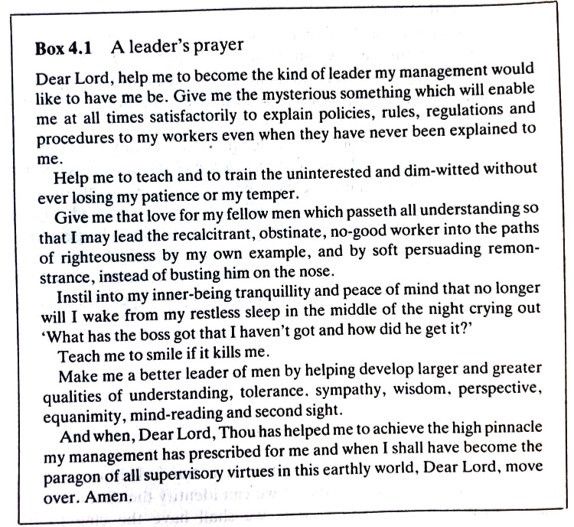
Joking aside, where does this all leave us? In my mind, from the perspective of personal development what matters most for leaders is, first and foremost, to become "good people". Basing my thinking on neo-aristotelian virtue ethics, that means to cultivate character and to develop a capacity for "practical wisdom". We need to be capable to enact contingently optimal and ethical decisions, in presence of uncertainty. This implies: to accurately reflect on a situation; understand its salient features; inquire into and evaluate multiple perspectives and "ethical theories"; and enact the most appropriate and timely intervention that brings about the good we identify with, in our role and in our life. Hence, a good starting point for our end-of-year reflections might be to clarify what we stand for, and what unique good we can contribute to our organisations and communities next year. And what "virtues" we might need to practice more, in order to bring our best self "to life".
But, of course, individual agency is insufficient. As modern leaders, we also need to equip ourselves with skills, tools and methods to craft organisations where "good leaders" generate "good leadership", across system and ecosystem. As Peter Senge once suggested, true "leadership is the capacity of a community to create its future".
In this context, in our own #GoodOrganisation inquiry we seek to construct a systemic theory for ethical and effective leadership, where "success" is not only determined by efficiency or outcomes, but by the way people interact, develop and flourish. An Organisation is only ever as good as "the people it creates", through work. This also implies that in our model leadership effectiveness is not simply about "influencing others to behave in a certain way", and not even about giving away positional power to enable "individuals to become self-entrepreneurs", but it is rather about being a symbolic expression of "who" the organisation wants to become… The role of leaders is not only to foster an environment that balances task performance with deliberate development of people and communities, but also to become "guardians" of the identity, meaning and character of their businesses, as part of a wider blueprint for a good society, for all. No easy task, indeed.
Undoubtedly, for many of us leadership is and will remain an important yet troublesome conundrum. Its messiness won't disappear anytime soon. And maybe, at the end of the day, that is a good thing. As long as it spurs us on to keep asking those deeper questions about what it means to fulfill leadership roles responsibly, and how to continue to work on our capacity to become our very best, for the good of all.
In this sense, our very best wishes for many successful New Year's resolutions and a year full of good leadership!
---
Further Resources
More information about Good Organisations: https://goodorganisations.com
In case you are not familiar, do have a look at Simon Western's insightful "Leadership Discourses" (Simon is one of our sparring partners for #GoodOrganisations): https://sk.sagepub.com/books/leadership-a-critical-text
Joking aside, where does this all leave us? In my mind, from the perspective of personal development what matters most for leaders is, first and foremost, to become "good people". Basing my thinking on neo-aristotelian virtue ethics, that means to cultivate character and to develop a capacity for "practical wisdom". We need to be capable to enact contingently optimal and ethical decisions, in presence of uncertainty. This implies: to accurately reflect on a situation; understand its salient features; inquire into and evaluate multiple perspectives and "ethical theories"; and enact the most appropriate and timely intervention that brings about the good we identify with, in our role and in our life. Hence, a good starting point for our end-of-year reflections might be to clarify what we stand for, and what unique good we can contribute to our organisations and communities next year. And what "virtues" we might need to practice more, in order to bring our best self "to life".
But, of course, individual agency is insufficient. As modern leaders, we also need to equip ourselves with skills, tools and methods to craft organisations where "good leaders" generate "good leadership", across system and ecosystem. As Peter Senge once suggested, true "leadership is the capacity of a community to create its future".
In this context, in our own #GoodOrganisation inquiry we seek to construct a systemic theory for ethical and effective leadership, where "success" is not only determined by efficiency or outcomes, but by the way people interact, develop and flourish. An Organisation is only ever as good as "the people it creates", through work. This also implies that in our model leadership effectiveness is not simply about "influencing others to behave in a certain way", and not even about giving away positional power to enable "individuals to become self-entrepreneurs", but it is rather about being a symbolic expression of "who" the organisation wants to become… The role of leaders is not only to foster an environment that balances task performance with deliberate development of people and communities, but also to become "guardians" of the identity, meaning and character of their businesses, as part of a wider blueprint for a good society, for all. No easy task, indeed.
Undoubtedly, for many of us leadership is and will remain an important yet troublesome conundrum. Its messiness won't disappear anytime soon. And maybe, at the end of the day, that is a good thing. As long as it spurs us on to keep asking those deeper questions about what it means to fulfill leadership roles responsibly, and how to continue to work on our capacity to become our very best, for the good of all.
In this sense, our very best wishes for many successful New Year's resolutions and a year full of good leadership!
#Management #Philosophy #Business #Politics #Sustainability
---
Further Resources
More information about Good Organisations: https://goodorganisations.com
In case you are not familiar, do have a look at Simon Western's insightful "Leadership Discourses" (Simon is one of our sparring partners for #GoodOrganisations): https://sk.sagepub.com/books/leadership-a-critical-text
Popular articles in the KnowledgeHub: Good Leadership
“Act as if what you do makes a difference. It does.” - William James
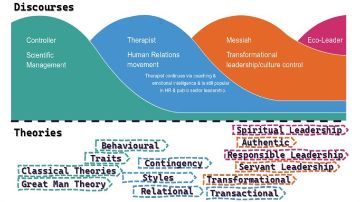
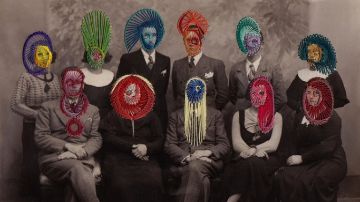

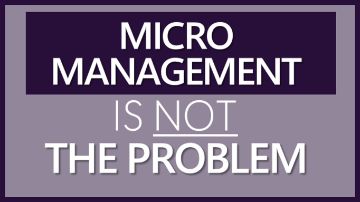
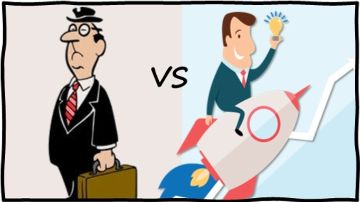
 .
.